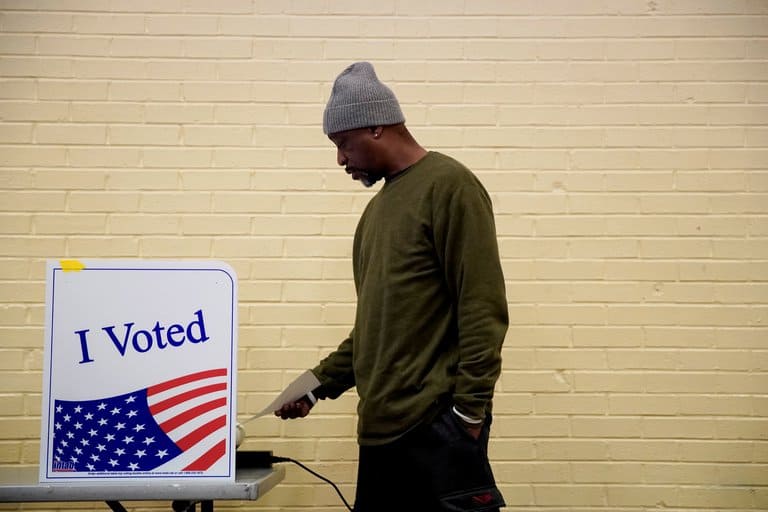Donald Trump suggested this Thursday that the elections could be postponed in the face of the coronavirus pandemic
The coronavirus pandemic has not yet ceased and has already produced several alterations in the United States primaries and the cancellation of party conventions. Donald Trump suggested this Thursday for the first time the possible postponement of the date of the elections scheduled for the next 3 of November.
The President, who has been ramming against the vote by mail for months, a possibility that exists in the US electoral system but that this time could be more massive than ever, wrote on Twitter that this could be “ the most inaccurate and fraudulent election in the history ” and“ a great shame for the United States ”. ” Postpone the election until people can properly and safely vote? “, he asked himself.
The possibility seems very distant. The United States is perhaps the only democracy in the world that has the date of its presidential election set by law and never postponed it, even in times of war.
The US Constitution gives Congress the power to set the date of the elections. In 1845 , a law established that ” the elections of the President and the vice president must be held, in each state, on the Tuesday following the first Monday in November, every four years successively after each election.”
The original formula after the “Tuesday following the first Monday in November” originated from respect for religion and private life. It was preferred that it be on a weekday and not on Saturdays and Sundays which are dedicated to prayer in various religions. Then November was chosen, when spring has already advanced and the climate is suitable throughout the country; on a Monday it would have forced many people in the 19th century to have to leave their houses on the weekend to undertake the journey and, finally, it was decided to prevent the election from falling on November 1, the Christian celebration of the Day of All Saints.
Thus, the date was set by law and can only be modified by another law, something that would be utopian for Trump to achieve, with a polarized Congress in which Republicans are a minority in the House of Representatives and have a narrow majority in the Senate. .
“The matter was more dramatic than ever during the 1864 election, which was held in the midst of the Civil War, but not even on that occasion was it postponed,” explained constitutional law professor Richard Pildes.
There is a long discussion about whether the President has some kind of “emergency power” that allows him to make exceptional decisions. Trump has already argued in favor of this type of power, although the Constitution does not explicitly grant it. But the United States Supreme Court has been exhaustive on other occasions, when it had to set limits for the presidents.
Furthermore, the US Constitution establishes, in its 20th amendment, a mandatory date on which the President must finish his term: January 20 at noon. So, if the election could be postponed, it could not be for a long time either, because it is necessary to comply with the vote counting schedule and its probable revisions in the most contested states and the Electoral College meeting.
According to the procedures established by the United States Constitution, if by January 20 a President was not elected, Trump should leave the White House and the Chamber of Deputies would have to choose a president in charge and the Senate the vice president.

